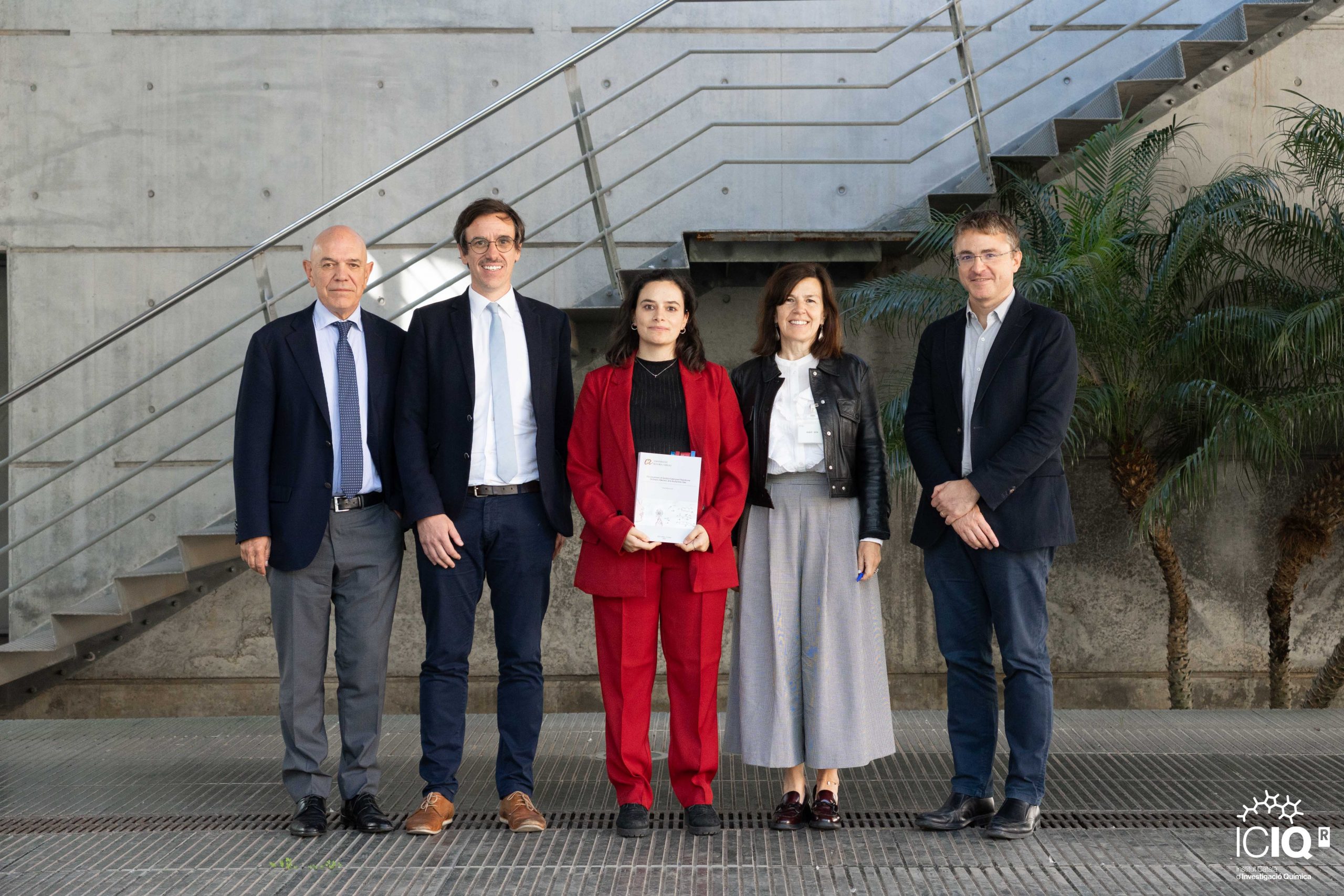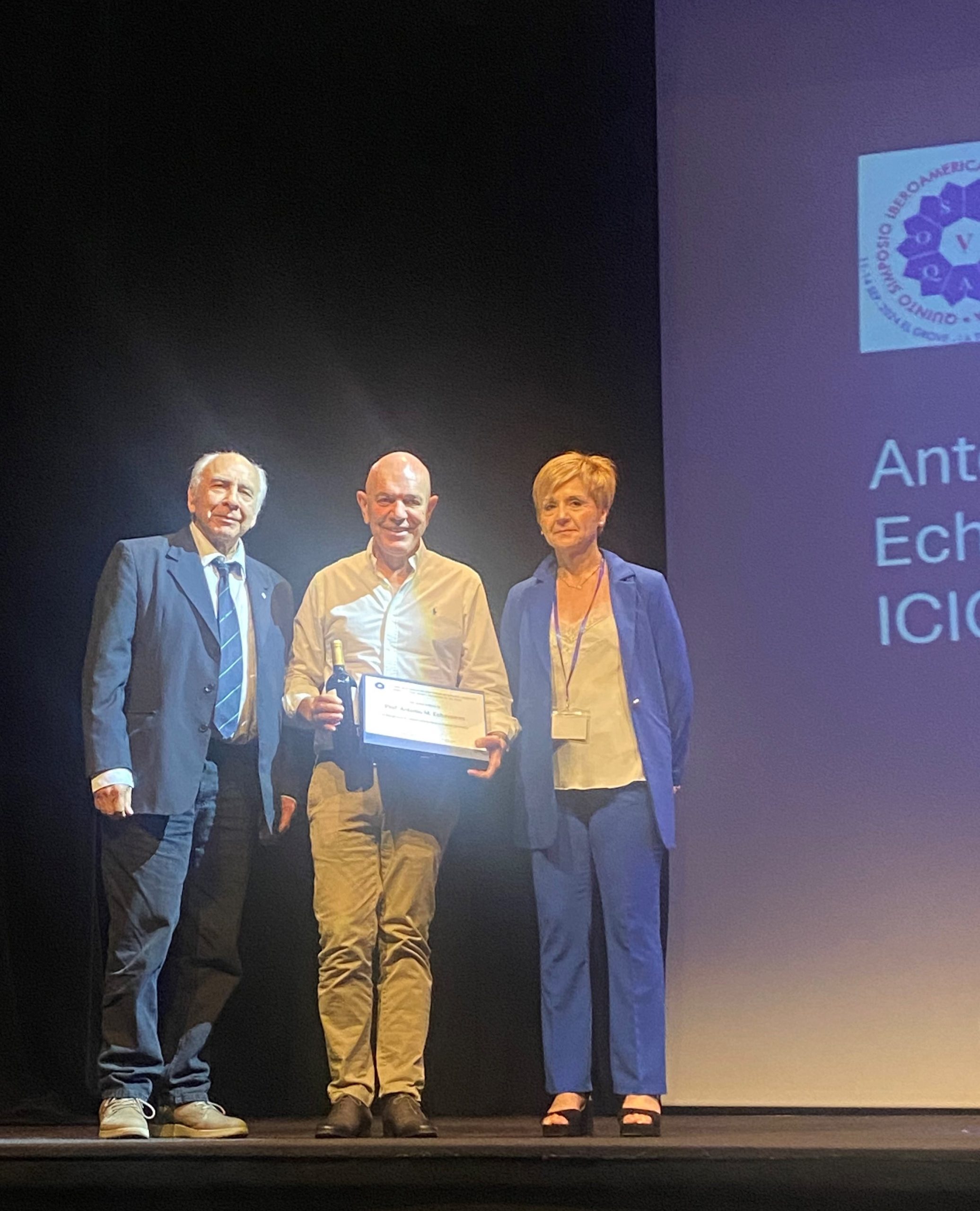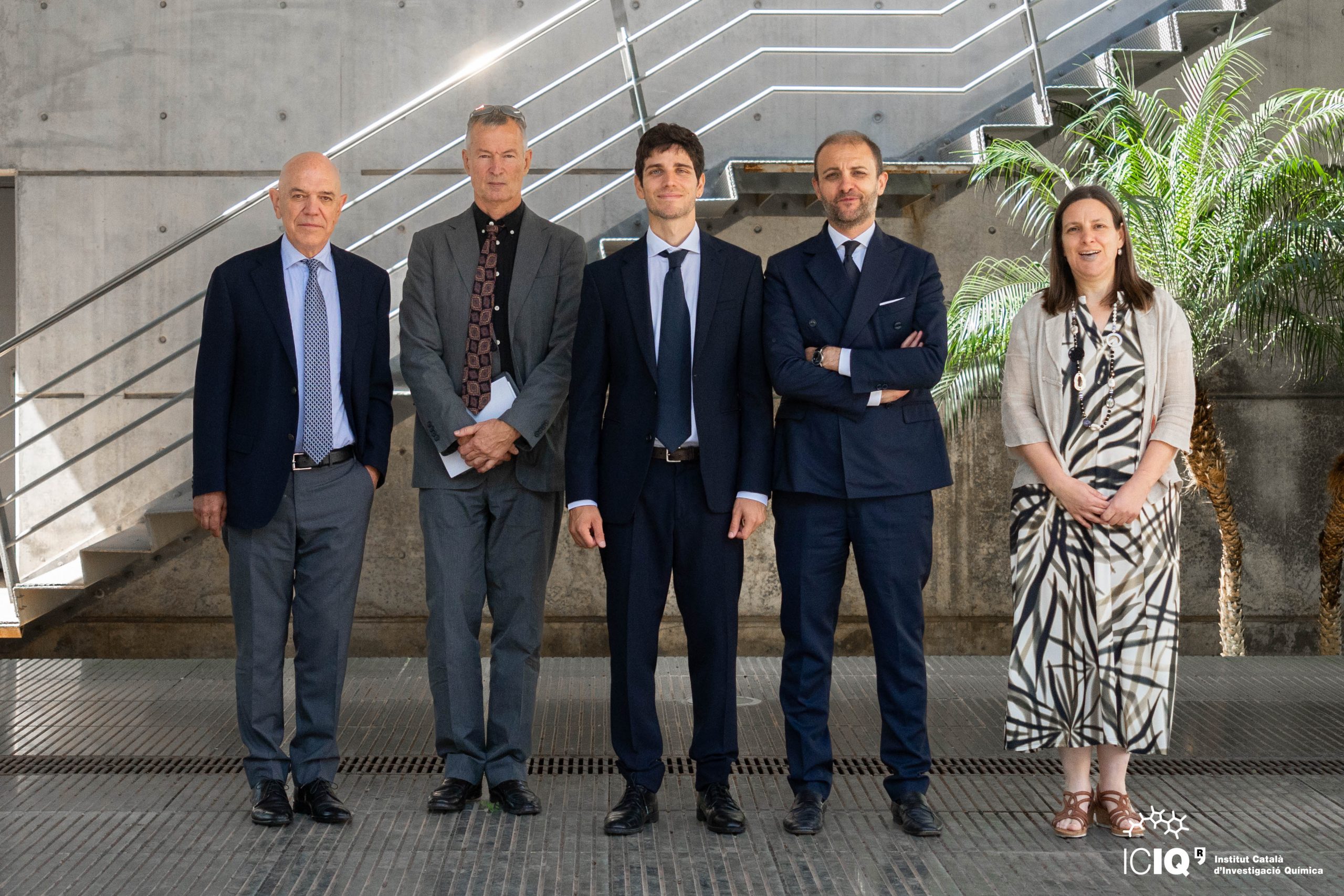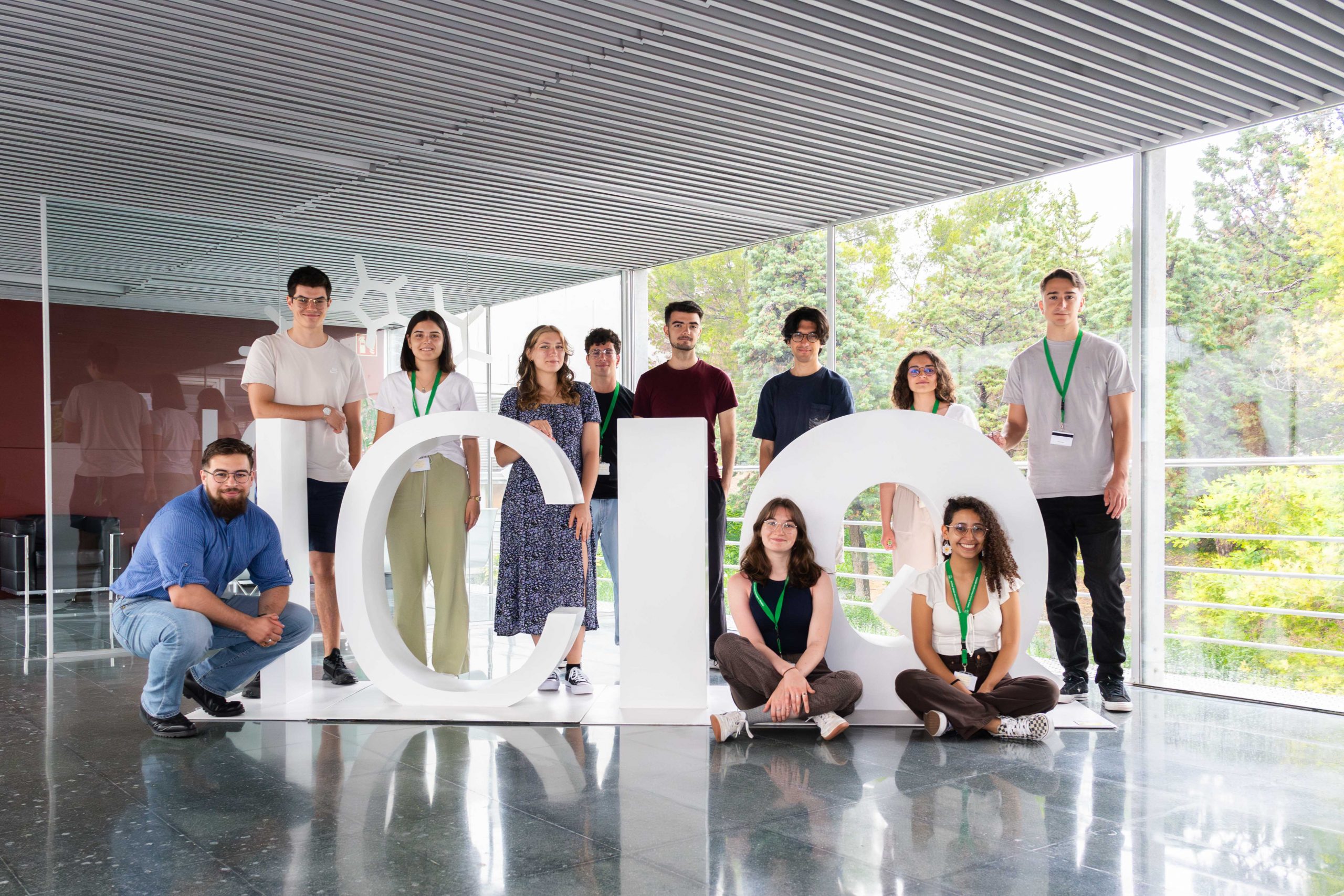New gold-catalysed reaction to use acetylene as the base of pharmaceutical molecules
ICIQ researchers present the first fully intermolecular three-component reaction catalysed by gold(I) that involves acetylene gas, alkenes, and alcohols
Researchers from the group of Prof. Antonio M. Echavarren, at the Institut Català d’Investigació Química, have developed a new reaction involving catalysts based on gold and improving the production of pharmaceutical and agrochemical molecules. The work has been published in the journal Organic Letters and presents an intermolecular three-component reaction between acetylene, alkenes, and alcohols. This reaction produces β-vinyl hemiaminal scaffolds from N-vinyl amides, reporting also the synthesis of pyrrolidine and piperidine derivatives. These are some of the most sought-after organic scaffolds in the development of new pharmaceutical and agrochemical molecules.
This research represents the first fully intermolecular three-component reaction catalysed by gold(I) involving acetylene gas, alkenes, and alcohols. It marks a significant advancement in synthetic chemistry, opening new pathways for the efficient and selective formation of complex molecules.
Prof. Antonio M. Echavarren
On the one hand, acetylene has become one of the major chemical feedstocks in chemical synthesis due to its high abundance and high reactivity. Despite recent advances in the development of transition metal mediated methodologies, more examples are desired for the full utilisation of the intriguing properties of acetylene.
On the other hand, gold(I)-catalysts have been shown to be highly efficient in the electrophilic activation of alkynes, which has been applied in a wide variety of organic transformations. Prof. Echavarren’s group previously reported the successful gold(I)-catalysed reaction between acetylene gas and alkenes to perform (Z,Z)-1,3-diene formations and biscyclopropanations and shown its application in the one step total synthesis of waitzacuminone, a sesquiterpene isolated from the aerial parts of an annual herb native to Australia (Waitza acuminata).
In these previous studies ICIQ researchers found that overactivity toward polymerisation was a major issue to overcome, as the products of the reaction also contain alkenes which can again partake in the reaction to generate oligomeric products. This has been the major hindrance towards the development of a truly intermolecular three-component protocol where none of the alkynes, alkenes, and nucleophiles are covalently linked. Therefore, the importance of the work here presented and published in the journal Organic Letters.
Reference publication
Three-Component Gold(I)-Catalyzed Alkoxyvinylation
Hammarback, L. A.; Medina-Gil, T.; Sadurní, A.; Echavarren, A. M.
Org. Lett. 2024, DOI: 10.1021/acs.orglett.4c02102
Related news

Let's create a brighter future
Join our team to work with renowned researchers, tackle groundbreaking
projects and contribute to meaningful scientific advancements







 24-10-2024
24-10-2024 


















